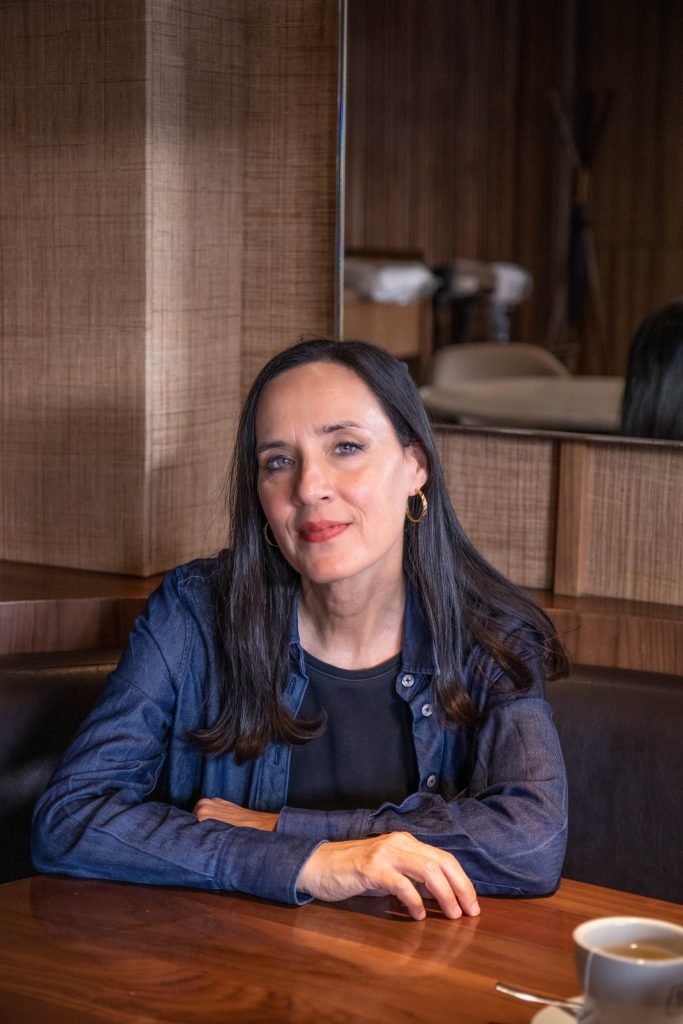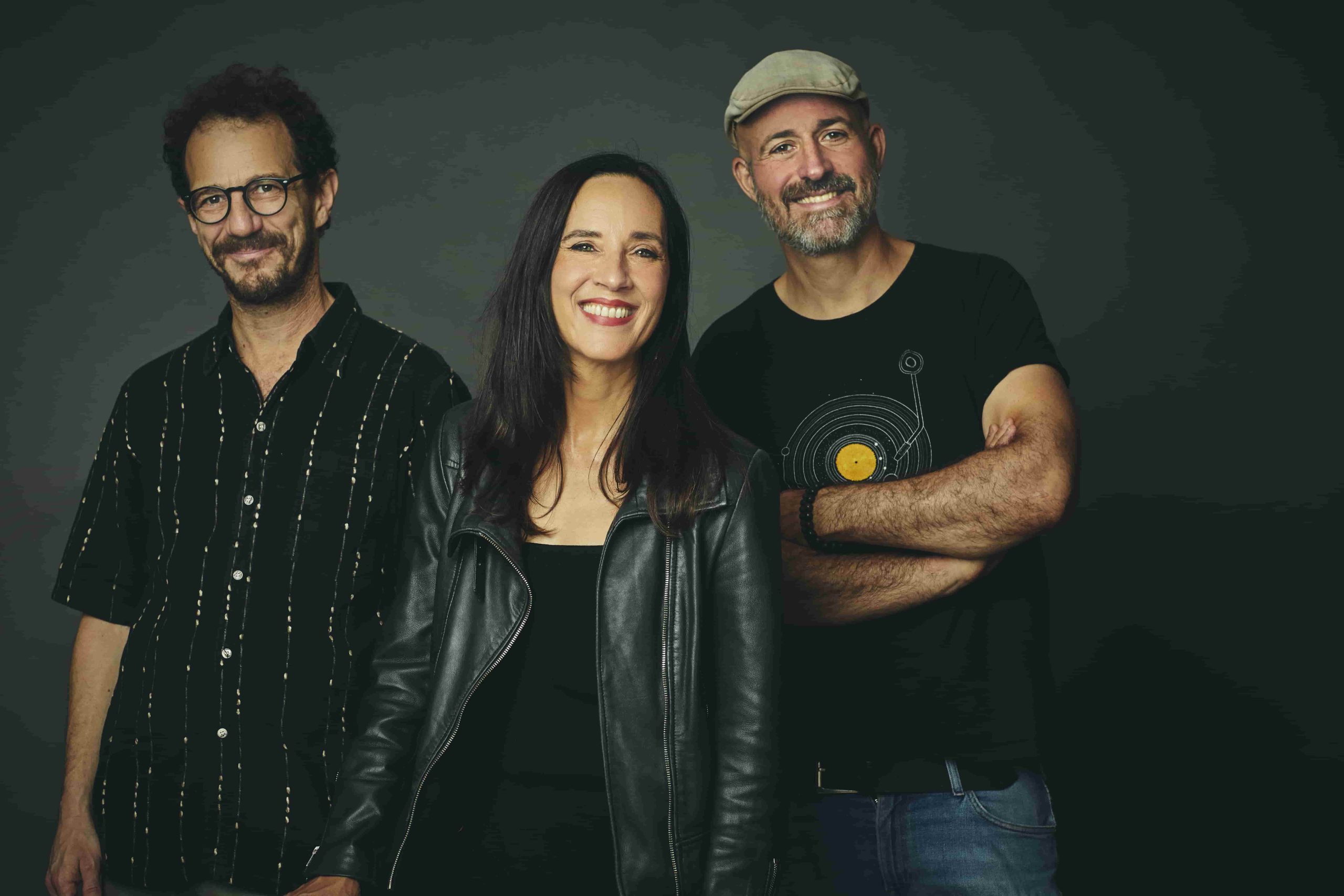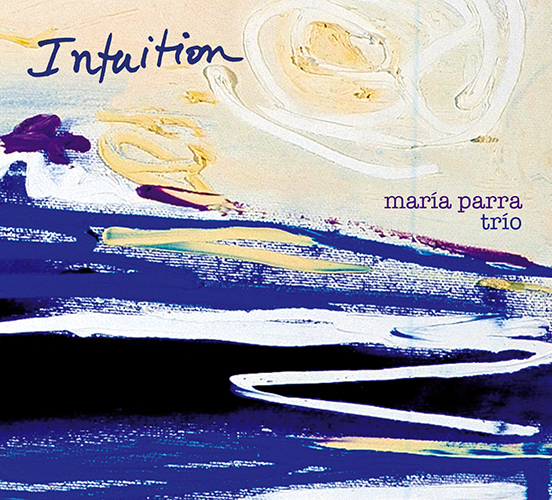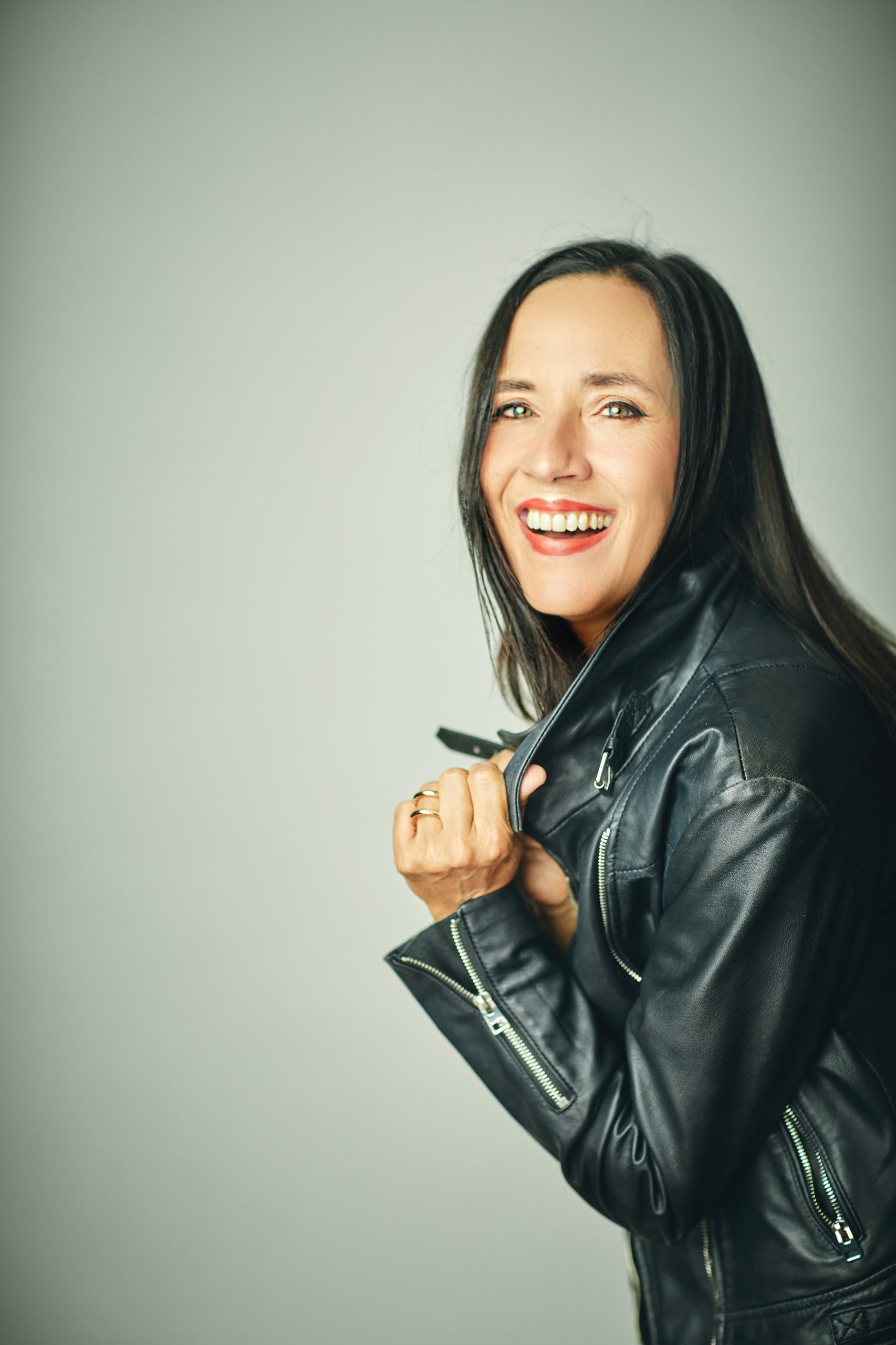
Interview with María Parra in the magazine másJazz digital by Violeta Salvador.


María Parra is a woman with a calm and serene look, with that poise characteristic of those who are convinced of being who they are. She has dedicated her life to music, first as a classical interpreter, and then evolving into creating her own repertoire. Like water flowing through a riverbed, her path appears to have been purposefully plotted. Her constant advances have been legitimized, both by the public and by critics, which has allowed her to deepen her desires as a musician and explore new horizons.
Now, we have the pleasure of witnessing a new milestone in her career: her latest album, in trio format, Intuition, accompanied by double bassist Miguel Rodrigáñez and drummer Gonzalo Maestre. This launch, scheduled for yesterday, May 24, consolidates her ability to innovate and reinvent herself.
María, you are about to release your first album in trio format, which you will also officially present today, May 25, at the Puerta de Toledo Cultural Center. It’s a big change in your musical career. What has the transition been like from working alone to forming a trio?
I have always been very eclectic in my musical training and experiences. Going from a soloist to working in a trio format was a challenge and a discovery. I realized that interacting with other musicians, in this case a percussionist and a double bassist, amplifies my music and adds a new dimension that I couldn’t achieve alone. So, I immersed myself in the trio format, which for me has always been the most intimate format after solo piano.
I imagine that working in a group requires a different dynamic. How do you manage the composition and leadership in the trio?
I present the initial ideas and my colleagues enrich them with their own contributions. I really have to take my hat off to my musicians. They surrounded my music with so much magic that nothing much else was needed. A lot has been polished, not only in rehearsals, but on stage. We’ve been shooting it for three years. And until we were very sure which version we identified with, we did not start recording.
You have mentioned that your classical training has given you a solid foundation, but also that you felt limited being just a performer. How did this influence your decision to create your own music?
There are people who enjoy interpreting and being mediums of that universal music, but for me it was no longer enough. And I wanted to recover all those skills that I had kept in a drawer. The first thing I felt was a lot of respect, a priori you don’t feel capable, but when you jump into the pool you have no choice but to swim. And I wanted to see what I could create. So, when I see that I am starting to create, that music came out in spurts, with influences of all kinds, I found that I was very happy. Time didn’t pass, I didn’t look at the clock. Do you know what they say now about mindfulness? I didn’t know what it was until I started composing and creating my own music. And that satisfaction for me was infinite. That feeling was intimate, but I also wanted to try it with the public. And the public was the one that legitimized me.
You mentioned that Warner Music Spain was interested in your music and gave you significant support. How did it impact your professional development?
That Warner bet on me was a turning point. It gave me the confidence and support necessary to launch myself as a creator. However, this last album I decided to self-produce. I wanted to have complete control and make sure every detail reflected my vision. It was a huge challenge, but also an incredibly rewarding experience. Warner preferred to stay with the solo piano project, because Spanish jazz does not interest them.
Self-production must have been a huge challenge, especially with all the aspects that come with it today. How did you manage to handle it all?
It was a test of endurance and organization. From funding to launch planning to promotion, every step required meticulous attention. But it was also an immense learning experience. Being independent gives you invaluable creative freedom. Furthermore, I have settled into being a composer and that has been a significant change in my professional life, showing that there is authenticity and coherence in my career.
Speaking of authenticity, in your newsletter you frequently mention your father, who was a great painter and whose paintings illustrate each of Intuition‘s singles. How has it influenced your music and your artistic vision?
In Intuition I wanted to honor my family lineage, in which there is a lot of art. On the album my sister’s poems and my father’s paintings appear. The Sessions series captivated me; I stood in front of the paintings and each one of them called me to illustrate each of the tracks on the album. It was a very personal discovery. My daughters have also been a driving force in difficult times in my life, giving me the strength to trust my music and move forward.

You have mentioned that there are certain prejudices towards Spanish classical and jazz musicians. How have you dealt with this in your career?
Right now there are a number of impressive performers, the level has risen a lot, but there is a lot of prejudice. For the majority of the world, Spain is flamenco and little else. Spanish classical music is accepted, but when it comes to playing Beethoven or the great composers, they tell you: “No, that’s why there are Germans, that’s why there are Central Europeans.” It is very good that one knows how to defend one’s own. Now, for example, folk is gaining a necessary boom and is finding its right place. But as musicians, we have a universal language and there are other musics that enter your sound universe. Classical is very good for preserving a tradition, but if you are connected to the world and music of today, it is natural to open up to other influences.
You have decided to release your album little by little through singles. Do you think it is still important to go for the full disc format from start to finish?
Yes, all these singles will later be combined into the album, which has its own cover. It is also a question of curriculum vitae. It is necessary to say that you have so many albums because it is what marks your career as an artist. If you release only singles without a common thread that later unites them into an album, you don’t have a work, just scraps. On the one hand, you take them out in pieces, but in the end, you put them together in an album, which has its concept, its aesthetics, its story and that you defend it in concert. That is still necessary. You have to combine all the traditional and innovative elements so that your work is in all areas, both modern and traditional.
To conclude, what’s next for María Parra after this release? Do you have new projects in mind?
I am always thinking about the next step. I would like to explore the incorporation of electronic elements in my music, both solo and in trio format or even larger ensembles. I also dream of composing for cinema. Music has incredible narrative power and I would love to see how my work could complement a visual narrative. In life, you have to be what you feel you have to be, and that requires a lot of faith and work. When you are focused on what you want and take one step after another, things will work out. But if you cut off that flow, you start to die little by little. The secret of it all is that each and every one of us on this planet is unique. And the work is to search within ourselves who we are, what we want to be, that treasure that is there to discover.
Search
-
Recent Posts
- María Parra publishes her new work «Ethereal» 14 December 2024
- Lunchtime Concert on Radio Clásica 6 November 2024
- María Parra in «Assaig general» 31 October 2024
- «Devoting myself to music has been the way to be faithful to my soul» 1 September 2024
- María Parra: «I’m in a sweet moment in my musical career since I decided to dedicate myself only to my music and play my own compositions» 25 July 2024
- Pianos and Fire Flowers 3 June 2024
- María Parra: «My intuition was not to leave music, my profession and my salvation» 1 June 2024
- A taste of the album “Intuition”, by the María Parra Trio 28 May 2024
- María Parra’s creative journey: “The secret of everything is that each and every one of us on this planet is unique” 25 May 2024
- María Parra Trío publishes her new album «Intuition» 24 May 2024
- María Parra publishes her new single «Avalon» 12 March 2024
- María Parra: «It was not in my plans to study anything other than music» 26 February 2024
- Maria Parra in “It’s not just any day” 17 February 2024
- Women on the Scene: Maria Parra 28 February 2023
- The reflective music of Maria Parra begins a new cycle of La Cripta 27 February 2023

